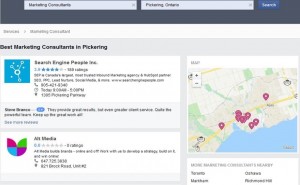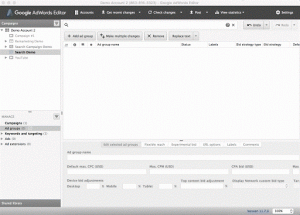Do you want to know the SEO best practices for local service professionals?
If you’re a chiropractor, therapist, pet sitter, or CPA and your business relies on local word-of-mouth, I have good news.
It’s not that hard to achieve good Google rankings (which in turn, can bring you more clients) just by following these basic SEO (search engine optimization) best practices.
The reason is simple.
Your competition is lazy.
Ok, maybe that’s a little harsh. Let’s say, your competition doesn’t know what to do. But you’re a smart cookie so you’re going to find out what to do and either spend time learning it or hire someone. THAT makes you smart.

Image of happy woman with outstretched arms standing in field
Over the years, I’ve had the honor to work with therapists, a chiropractor, numerous pet sitters, a dentist, and many other professionals and seen their websites ZOOM to the top of the search engines with these “can’t miss” SEO secrets.
Here’s the deal, if your competition doesn’t care about turning their website into a lead generating machine that’s GREAT news for you.
Now you may be thinking, SEO…that’s full of wizardry that I know nothing about and those companies that call me always want a small fortune.
But I’m here to tell you, you can learn to do the basics yourself and in many instances, doing a bang up job on the basics will put you head and shoulders above the rest.
Why just last week, I was at an event and two separate clients told me how much more business they were getting since I’d handled the basic SEO on their sites. Neither have an ongoing SEO package. It wasn’t necessary for them. It was simply a matter of putting into place the best practices.
Another client told me her calls to contract tripled after I rewrote her site incorporating SEO best practices.
What Do I Mean By SEO Best Practices?
It starts with keyword research which means you write the copy using the language of your potential clients.
Next, each keyword term is “assigned” to a web page. If you think of your site like a book with multiple pages, each page needs its own keyword term tied to the topic of the page. Google recognizes individual web pages and puts them together as a website. That means, you want to treat each page separately and link them together as appropriate.
Here’s an example. Let’s say you’re a divorce attorney.
You have a
- home page
- your about you page
- services page
- maybe individual pages to answer different questions about divorce such as one on “child custody”, another on mediation, etc.
- contact page
A basic website for any service professional is going to be at least 5-7 pages. Each of those pages gets it’s own “name” if you will. For example, your services page might be titled, “Divorce attorney services in Princeton.” It’s not an exciting title but you know what it does? It tells Google/Bing that the page is about “divorce attorney services in Princeton.” It also tells your reader that as soon as they land on the page.
That’s the goal behind SEO.
It tells your reader (and search engines) EXACTLY what your page is about when they get there. It’s far more effective than a simple “Services” because “services” expect your reader and search engine to know what type of services you offer before they get there. “Divorce attorney services is Princeton” is explicit. No guessing required.
You answer their questions within the copy and link to other pages within the website.
If you do a good job answering their questions, using the terms your readers use, you link the page to other pages and you include good meta title and descriptions, you’re more than halfway there.
Of course, the devil is in the details. Here’s a post I wrote on how to writing web content is different than writing other material. If you don’t craft it according to the guidelines, then you’ll miss out on important elements.
Such as, don’t forget to optimize your images as well as your web pages and blog posts. To do this, label your images with the keyword term for the page, not “image12_45.”
My Site Is Done. Can You “Add” SEO?
Of course you can. However, it’s not ideal.
A lot of my clients are undergoing a website refresh and want to make sure they’re hitting the best practices this time around.
When you start thinking about the “new” site is the time to think about SEO. What questions do people ask you about your business? Use a professional level program to handle keyword research or at least use Google’s Keyword Planner to guide you in the keyword terms.
Often clients come to me after their sites have gone live to “add in the SEO.”
It can be done but SEO web writing is not like adding icing to a cake. Rather, it’s like the eggs that go into the cake. SEO touches every aspect of your site — from design to site speed to navigation. That’s why I like to work with the web developer from the beginning.
However, assuming the site is done and now you realize it’s not the lead generation machine for which you’d hoped, reviewing it (and implementing) with an eye to SEO will still raise your site head and shoulders from your local competition. The reason is simply most local businesses aren’t covering the basics.
If you’re a service professional who serves a local area and you want to use your website as a critical tool in your lead generation arsenal, implement the SEO basics and you too can enjoy more clients from the web.
What are your biggest questions about local SEO best practices?
Digital & Social Articles on Business 2 Community(79)










